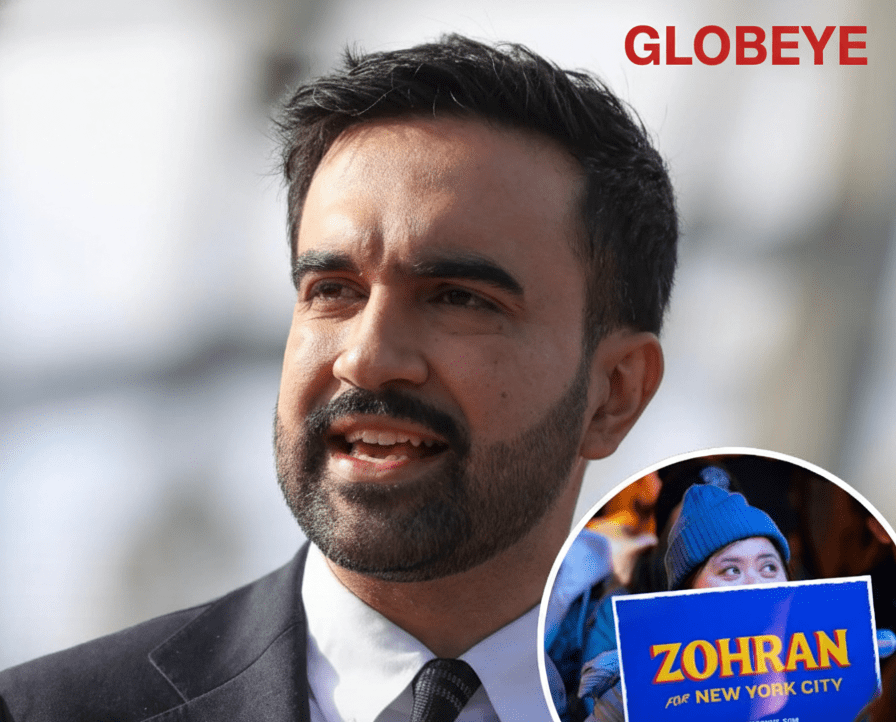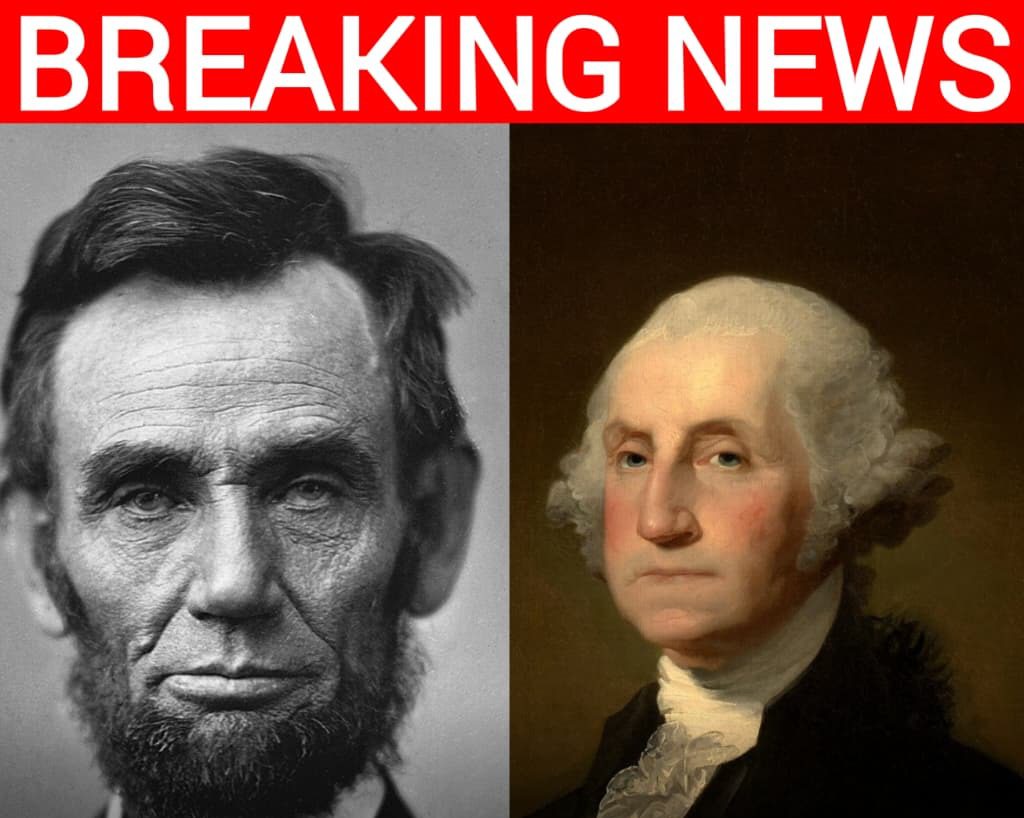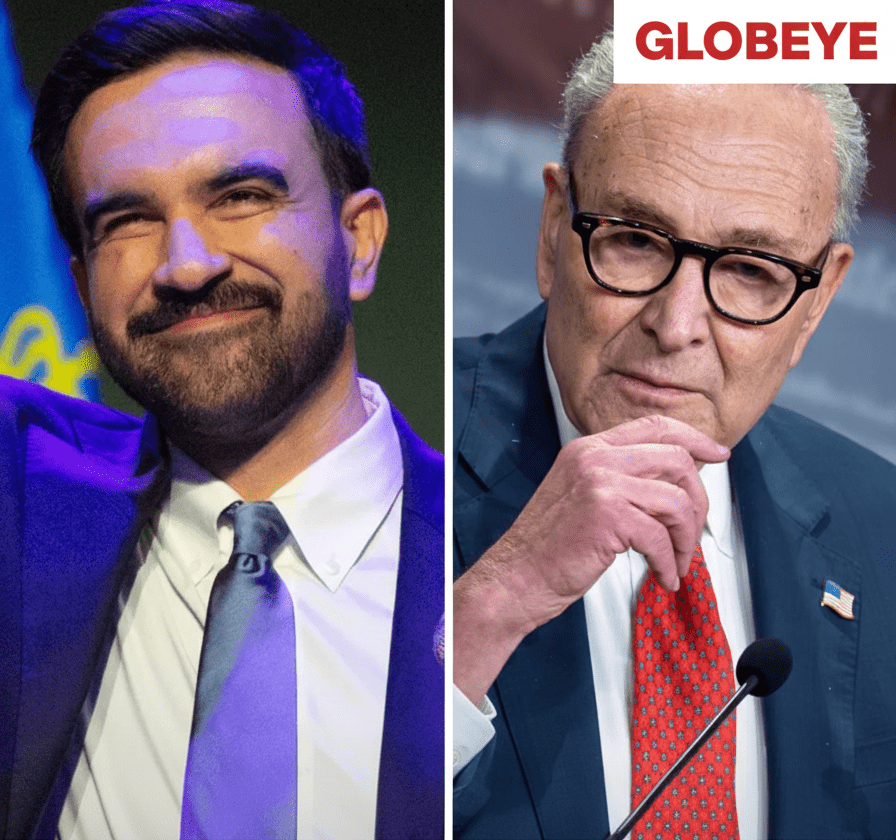Mayor-Elect Zohran Mamdani Declares It’s Time for “Aggressive Socialist Action” — Calls His Landslide Win a Mandate to Reshape New York
Fresh off a victory that stunned the political establishment, New York City’s newly elected mayor, Zohran Mamdani, wasted no time in making his intentions unmistakably clear. Standing before cheering supporters, the Democratic socialist told the city he’s ready to take bold, “aggressive action” on his progressive agenda — one that includes higher taxes for the wealthy and sweeping reforms aimed at what he calls “economic justice.” His words — “It is a mandate” — marked not just a declaration of confidence but the beginning of a new era in New York politics, one that even his critics admit could redefine the city’s balance between opportunity and ideology.
The 2025 election was more than a political contest; it was a cultural reckoning. Mamdani’s campaign leaned heavily on the language of affordability, equity, and housing reform, tapping into deep frustration among younger voters who’ve watched rents soar, job markets stagnate, and the American dream drift further out of reach. To his supporters, his victory represents not just a political win but a generational uprising — a direct answer to years of economic anxiety, corporate dominance, and what they view as government indifference.
“It’s not about ideology anymore,” one campaign volunteer said after his victory speech. “People are just tired of being priced out of their own lives.”

Mamdani, a 33-year-old son of Ugandan-Indian immigrants and a self-proclaimed socialist, has long been a controversial figure in New York politics. His victory follows years of activism in Queens, where he championed causes like rent freezes, police reform, and immigrant protection. His campaign messaging, filled with populist energy, focused on a singular promise: to make New York livable again for the people who built it. That message — coupled with massive youth turnout — propelled him to a historic win over political veterans Andrew Cuomo and Curtis Sliwa, securing him more than 60% of the vote in one of the most polarized elections the city has seen in decades.
Yet even as progressives celebrated, Mamdani’s post-election rhetoric raised immediate questions about how far he plans to go — and how fast. In his first major statement since election night, he described his agenda not as an option but as an obligation. “We didn’t just win,” he told supporters. “We earned a mandate to act.”
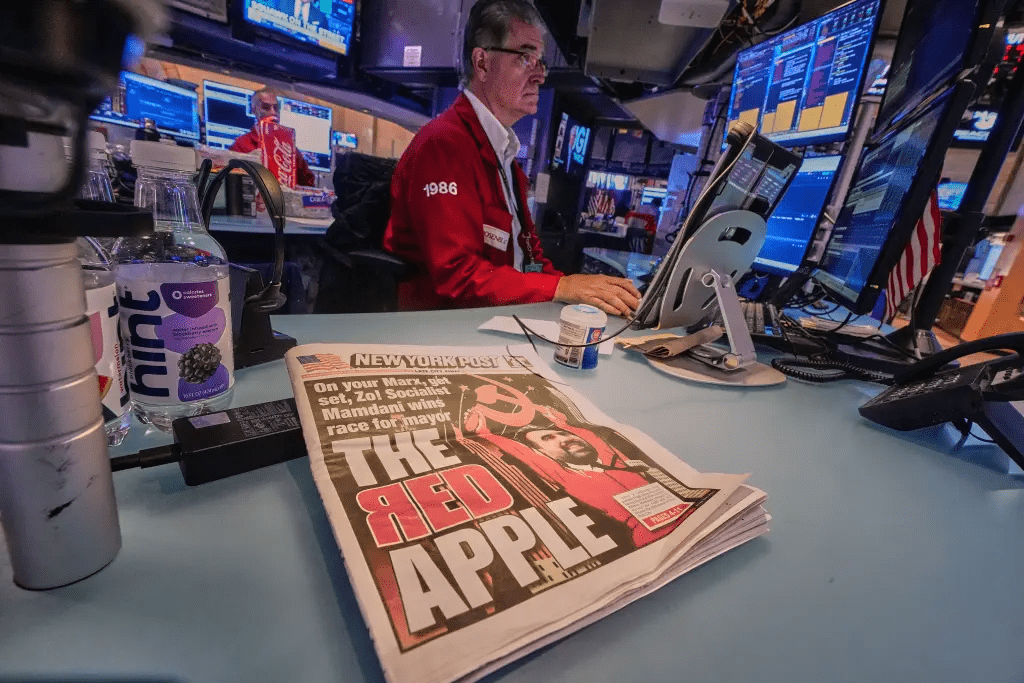
That declaration, reported by the New York Post and echoed across cable news, sent ripples through both political camps. To conservatives, it was a red flag — a sign that the nation’s largest city might be plunging even deeper into left-wing economic experimentation at a time of national uncertainty. To his allies, it was validation — proof that a grassroots, anti-establishment campaign could not only challenge entrenched power but also win decisively.
According to internal campaign figures, Mamdani’s strongest support came from voters under 35, with exit polls showing nearly 78% of young adults backing his vision of a “New Deal-style revival.” That demographic shift mirrored trends across urban America, where younger voters are increasingly disillusioned with traditional Democrats and drawn toward candidates promising structural change.
Still, Mamdani’s challenge now lies not in winning the argument, but in governing. His plans — which include new taxes on high-income earners, expansion of public housing, and the creation of a city-funded jobs program — have already sparked concern among economists and business leaders. The New York Chamber of Commerce warned in a statement Wednesday that Mamdani’s approach could “drive investment out of the city at a critical moment for recovery.” Others pointed to parallels with California’s high-tax model, cautioning that overly aggressive reforms could accelerate the exodus of companies and professionals from New York.
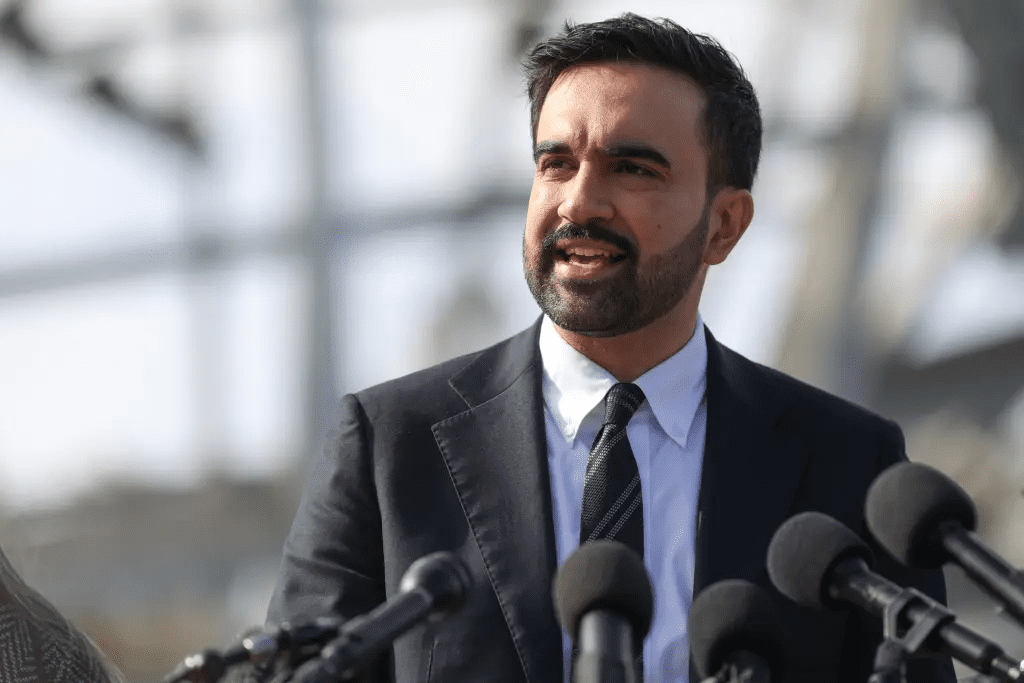
Despite those warnings, Mamdani appears undeterred. In interviews following his victory, he emphasized that his campaign promises were not mere rhetoric. “This is not a time for hesitation,” he said. “This is a time for courage. The people of New York have spoken, and they’ve given us a mandate to act boldly — to take back the city for working people.”
That statement echoed a theme that had defined his campaign from the start — the idea that New York, long seen as a playground for billionaires, had forgotten its working class. Throughout his rallies, Mamdani frequently cited statistics showing how median rents in the city had doubled in just 15 years, while real wages for many residents had stagnated. “We can’t keep asking people to live paycheck to paycheck in the richest city in the world,” he said during his final debate against Cuomo. “If the system is broken, we don’t tweak it — we rebuild it.”
For progressives nationwide, Mamdani’s win is being hailed as a model for future campaigns — a fusion of local activism, social media strategy, and grassroots organizing that succeeded without the backing of major donors or corporate PACs. His victory speech, streamed live to hundreds of thousands online, featured chants of “Tax the Rich” and “Homes, Not Hotels,” reflecting the populist tone that carried his campaign.
But while supporters see a revolution, critics see a risk. Fox News commentators labeled Mamdani’s early remarks as “reckless populism,” arguing that his proposed tax hikes could cripple small businesses already struggling under inflation. Others accused him of exploiting economic pain for political gain. “Calling this a mandate doesn’t make it one,” one former state official said. “You can’t govern a city like New York with slogans. You need balance, and you need realism.”

Even within his own party, there are concerns. Some moderate Democrats worry that Mamdani’s hardline economic agenda could alienate centrist voters and deepen divides between progressives and traditional liberals. “There’s a fine line between bold leadership and overreach,” said one longtime Democratic strategist. “Mamdani’s energy is inspiring, but it’s also volatile. The city will test him fast.”
The challenges ahead are undeniable. New York faces a projected $9 billion budget gap in 2026, a housing crisis that has pushed vacancy rates below 2%, and record levels of homelessness. Meanwhile, crime rates, though lower than during the pandemic peak, remain a persistent political flashpoint. Mamdani’s critics argue that his social spending plans could worsen the city’s fiscal strain, while his supporters insist that investment in people — not austerity — is the only way forward.
Still, the mayor-elect has made one thing clear: he intends to move quickly. “Incremental change got us here,” he told reporters this week. “The people didn’t vote for slow progress. They voted for transformation.”
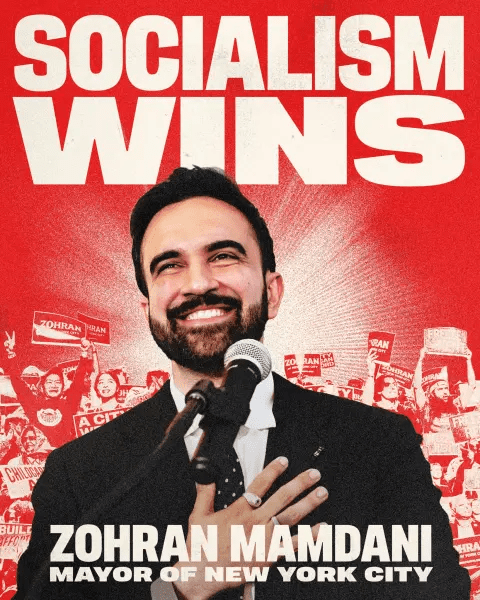
Behind the scenes, Mamdani’s transition team is reportedly drafting executive orders that would expand tenant protections and direct new funding toward affordable housing construction. Advisors close to him have hinted at plans for a “City Fairness Act” — a sweeping reform package aimed at reshaping New York’s tax system and redistributing funds toward public infrastructure and education. Though the details remain under wraps, one aide described it as “the boldest redistribution effort in city history.”
Whether that vision succeeds or sparks backlash remains to be seen. What’s clear is that Zohran Mamdani is not backing down from the label his opponents used against him. “They called me a socialist,” he said in his victory address, “and they were right — because I believe in a city where no one gets left behind.”
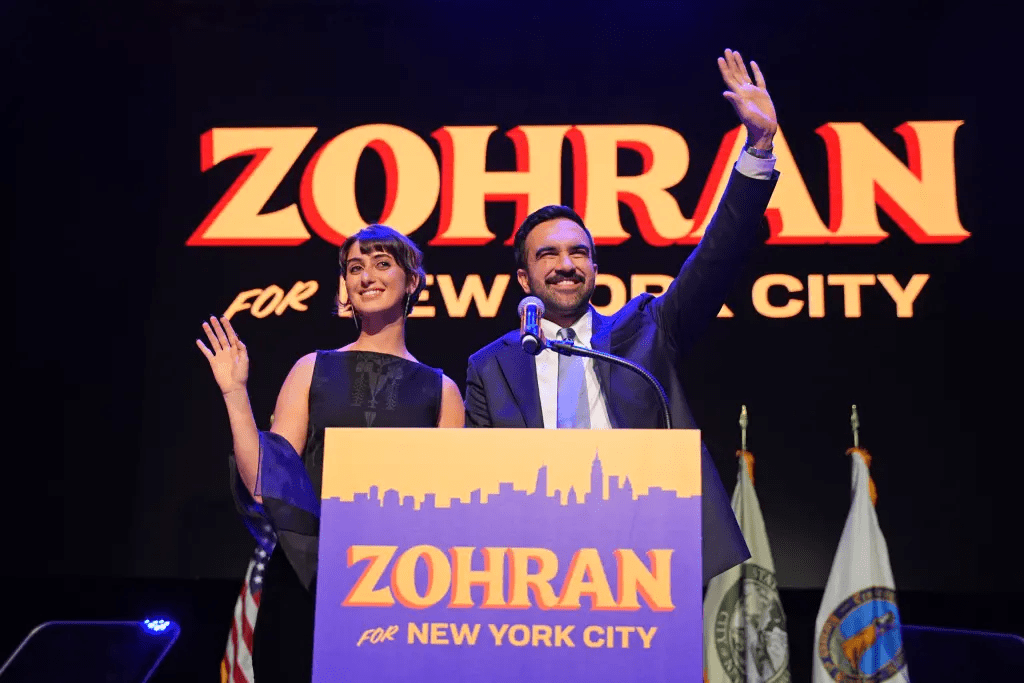
For supporters, those words symbolized a long-awaited change — the beginning of a political chapter written not by lobbyists or legacy power brokers, but by a generation demanding something more. For critics, they symbolized danger — the risk of ideological excess at a time when pragmatism is most needed.
Either way, New York has entered uncharted territory. The man once dismissed as a long-shot candidate from Queens now stands at the helm of America’s most iconic city, promising to rewrite its story. Whether history will remember Zohran Mamdani as a reformer or a radical will depend not just on what he says next — but on how his city survives the storm he’s about to unleash.
